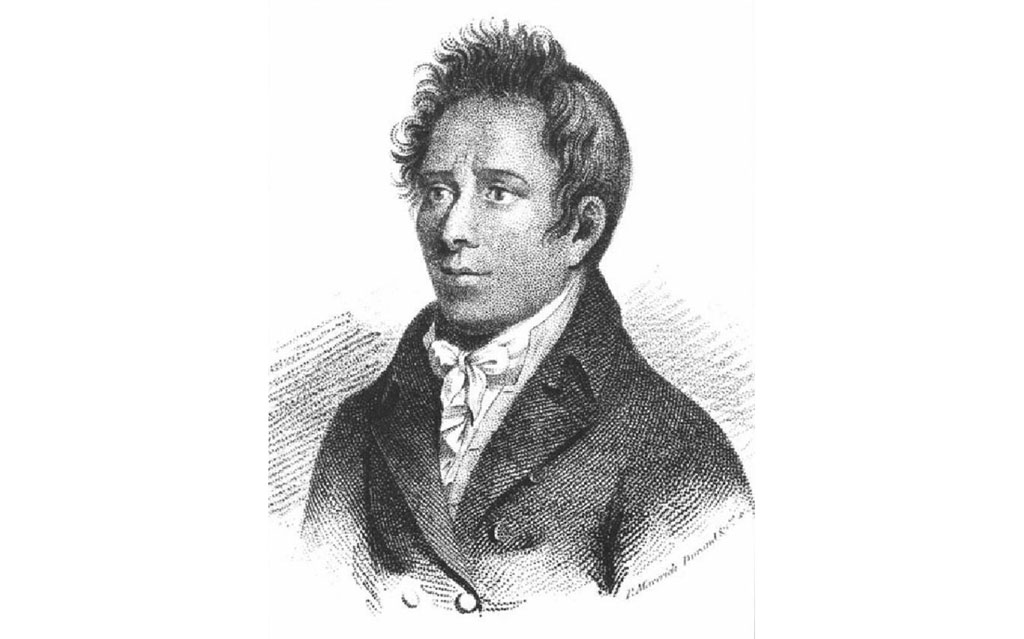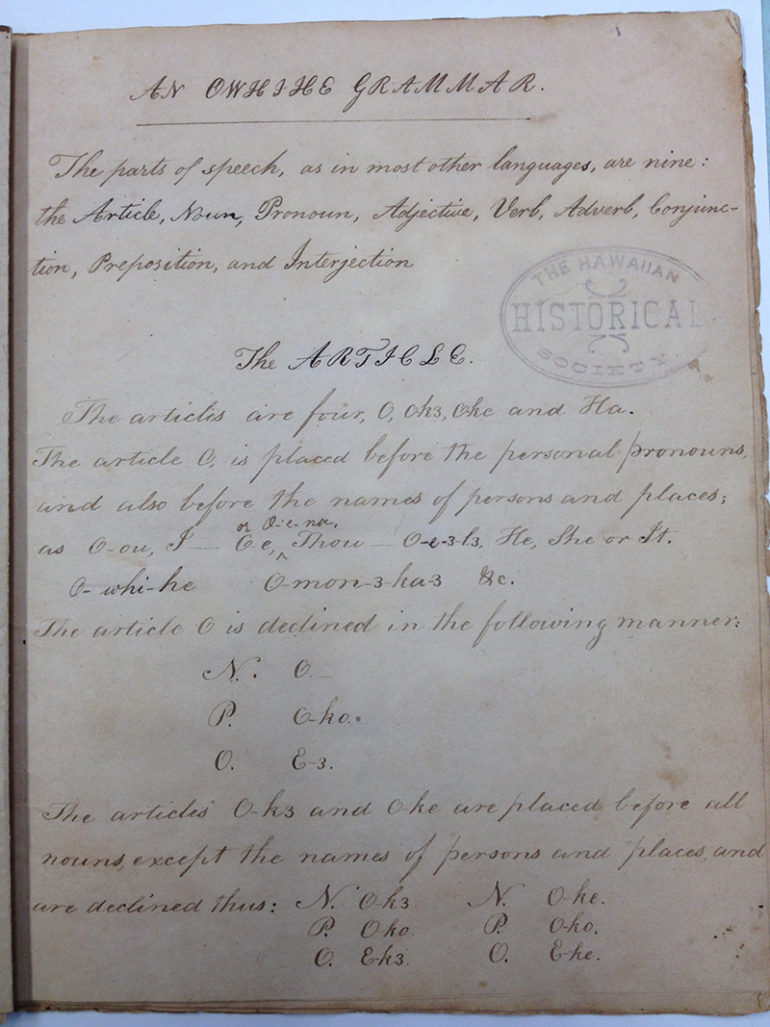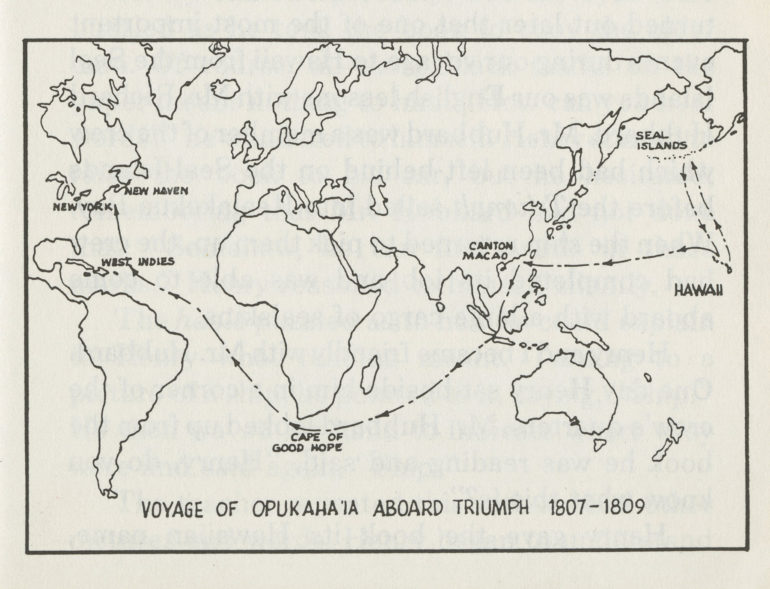Henry ʻŌpūkahaʻia played a pivotal role in inspiring the missionary presence in Hawai‘i. His avid embrace of Christianity, told in the best-selling Memoirs of Henry Obookiah,1 created a compelling vision of what the missionaries could accomplish in these far-off lands.
Born in Kaū, Hawai‘i, in 1792,2 ʻŌpūkahaʻia was orphaned at a young age after a battle between rival Hawaiian clans. Desperate to escape, he later wrote that, “I began to think about leaving that country, to go to some other part of the globe, I did not care where I should go.” In 1807, the teen hopped aboard a trading ship, the Triumph, bound for Alaska and China. Two years later, he disembarked on the East Coast and made his way to New Haven, Connecticut. ʻŌpūkahaʻia first stayed with the family of Timothy Dwight, president of Yale University and co-founder of the American Board of Commissioners for Foreign Missions (ABCFM). After meeting ʻŌpūkahaʻia in 1809, Samuel J. Mills, Jr. (Panel 1) began tutoring him in Christian principles, and in reading and writing.
ʻŌpūkahaʻia became an exceptional scholar. He mastered English and Hebrew, learned Greek and Latin, and graduated from the Foreign Mission School in one year. He even invented an ingenious system of Hawaiian pronunciation that combined coded numbers with English letters. For example, “3-o-le” translated to ‘a‘ole, or no, in Hawaiian. He dreamt of leading a mission back to Hawai‘i to “preach the Gospel to my Countrymen.” Before this could happen, however, ʻŌpūkahaʻia died on February 17, 1818. His death was a major loss, but his memoirs lit the way for the missionaries’ undertaking in Hawai‘i.

“I hope the Lord will send the Gospel to the Heathen land, where the words of the Saviour never yet had been. Poor people, worship the wood and stone and shark, and almost every thing [serves as] their gods; the Bible is not there, and heaven and hell they do not know about it.”
— Letter from ʻŌpūkahaʻia to unidentified friend, December 18123

21792 is ʻŌpūkahaʻia’s accepted birth date, though he may have been born in 1787. Cook, Christopher L., The Providential Life and Heritage of Henry Obookiah, Pa‘a Studios, Hawai‘i, 2015, p. xi.
3Demos, John, The Heathen School, Alfred A. Knopf, New York, 2014, p. 27.



